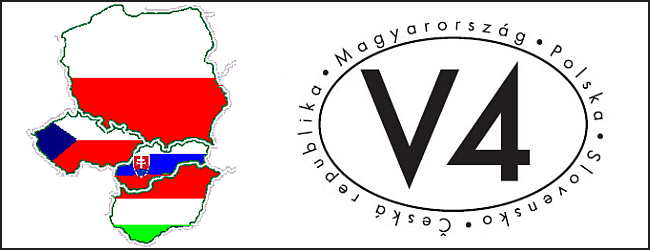V4 Countries, also known as the Visegrad Group, is a political and cultural alliance formed in 1991 by four Central European countries – the Czech Republic, Hungary, Poland and Slovakia. International arbitration in V4 countries is not a centralised matter. Consequently, this area is subject to the legislation of each State.
This blog provides a general overview of arbitration acts and arbitration bodies that exist in the V4 countries.
International Arbitration in the Czech Republic
Arbitration Law in Force
International arbitration in the Czech Republic is governed by Act No. 216/1997 on arbitration proceedings and enforcement of arbitration awards. In addition, the Czech Republic is party to the New York Convention on the Recognition and Enforcement of Foreign Awards (the ‘New York Convention’), the ICSID Convention, as well as multiple bilateral investment treaties (‘BIT’s’).
The Czech Republic has been involved in several investment arbitration proceedings. Among the best known ones are Lauder v. Czech Republic, CME v. Czech Republic or Phoenix v. Czech Republic. The list of investment cases can be found here.
Arbitration Bodies in Czechia
The main arbitration institution in the Czech Republic is the Arbitration Court attached to the Economic Chamber and Agricultural Chamber of the Czech Republic (Rozhodčí soud při Hospodářské komoře a Agrární komoře České republiky). The Court administrates both domestic and international commercial disputes, as well as domain disputes.
There exist other arbitration bodies established in the specific area of stock and commodity exchanges : the Exchange Stock Court Arbitration attached to the Prague Stock Exchange and the Arbitration Court attached to the Czech-Moravian Commodity Exchange Kladno.
International Arbitration in Hungary
Arbitration Law in Force
The arbitration law in Hungary is encompassed in the new Arbitration Act of 2017, applicable as of 1 January 2018. The year 2017 was equally crucial for recognition and enforcement of foreign judgments and arbitral awards with the adoption of the new Act XXVIII on International Private Law.
Hungary is also party to the New York Convention, the ICSID Convention, and several BITs.
Hungary was the Respondent State in numerous investment cases, such as Electrabel v. Hungary or Telenor v. Hungary. The list of investment cases can be found here.
Arbitration Bodies in Hungary
The arbitration institution that is commonly used in Hungary is the Permanent Arbitration Court attached to the Hungarian Chamber of Commerce and Industry. Following the 2017 Arbitration Law reform, the Court adopted the new Arbitration Rules which apply to arbitral proceedings initiated after 1 February 2018. Therefore, for all proceedings pending prior to this date, the former 2011 Arbitration Rules remain applicable. Among principal innovations, the new Rules include the establishment of a preliminary case management conference that needs to be set up within 30 days after the constitution of the arbitral tribunal.[1]
Moreover, Hungary disposes of other arbitration institutions, such as the Permanent Arbitration Court for Sport.
International Arbitration in Poland
Arbitration Law in Force
Arbitration in Poland is governed by the provisions of Part V of the Polish Code of Civil Procedure. Pursuing to Article 1154 of the code, these provisions also apply to arbitral proceedings when the seat of arbitration is abroad. Poland is also party to the New York Convention, the ICSID Convention, and multiple BITs.
Poland has faced dozens of investment arbitration proceedings, such as Cargill v. Poland or Davit Minnotte & Robert Lewis v. Poland. The list of investment cases can be found here
Arbitration Bodies in Poland
The most well known arbitration body in Poland is the Court of Arbitration at the Polish Chamber of Commerce in Warsaw (Sąd Arbitrażowy przy Krajowej Izbie Gospodarczej). The Court was created in 1950 under the name of the Council of Arbitrators at the Polish Chamber of Foreign Trade. Arbitration proceedings are governed by the Rules of Arbitration in force as of 1 January 2015.
There exist other arbitration bodies in Poland, intervening in specific areas. This is the case of the Court of arbitration in matters concerning internet domain names at the Polish Chamber of Information, Technology and Telecommunications; the International Court of Arbitration at the Polish Chamber of Maritime Commerce and the Court of Arbitration at the Polish Bank Association.
International Arbitration in Slovakia
Arbitration Law in force
International arbitration in Slovakia is governed by Arbitration Act No. 336/2014 Coll. amending Act No. 244/2002 Coll. and applicable as of 1 January 2015. As is the case for other V4 countries, Slovakia is party to the New York Convention, the ICSID Convention and a number of BIT’s.
Slovakia was also involved in several investment arbitration proceedings. The most known are certainly CSOB v. Slovakia or EuroGas v. Slovakia. The list of investment cases can be found here.
Arbitration Bodies
The leading arbitration institution in Slovakia is the Arbitration Court of the Slovak Chamber of Commerce and Industry (Rozhodcovský súd Slovenskej obchodnej a priemyselnej komory). There is also a specialised institution intervening in banking disputes: the Permanent Arbitration Court of the Slovak Banking Association (Stály rozhodcovský súd Slovenskej bankovej asociácie).
Besides these institutions, Slovak parties often choose to resort to arbitration administrated by the Vienna International Arbitration Centre (VIAC).
[1] K. Hentényi, A. Bognar, “Hungary : New Arbitration Rules of the HCCI”, Kluwer Arbitration Blog, 9 March 2018.

